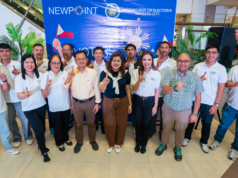In his letter to Malacanang, lawyer Ernesto Francisco who represents some of the families, said the fund was cited by Sanofi in 2016 in a report to the US Securities and Exchange Commission.
The government suspended Dengvaxia vaccinations amid Sanofi ’s admission in November last year that it could worsen dengue among those without any previous history of dengue infection.
By then, however, some 800,000 Filipino children already had Dengvaxia shots.
Francisco said the Sanofi funds include 968 million euros or about P62.4 billion provisions for “product liability risks” and “litigation” and another 732 million euros or about P47.2 billion for “environmental risks and remediation.”
He said Sanofi intended the funds to cover “product liabilities, government investigations, competition law, regulatory claims, warranties in connection with certain contingent liabilities arising from business divestitures other than environmental matters and other claims.”
He quoted Sanofi in the report as saying that “from time to time, subsidiaries of Sanofi are subject to governmental investigations and information requests from regulatory authorities inquiring as to the practices of Sanofi with respect to the sales, marketing, and promotion of its products.”
In a letter he earlier sent to Executive Sec. Salvador Medialdea and other administration officials, Francisco urged the government “to pursue legal remedies or actions available in the United States against Sanofi or Sanofi Pasteur in connection with the conduct of clinical trials on the anti-dengue vaccine Dengvaxia, the marketing, supply and sale of Dengvaxia to the Philippines and the mass vaccination of Filipino children. “
“In particular, I suggested for the Philippine government to request the United States’ Department of Justice or Attorney General to conduct an investigation of Sanofi for possible violation of the laws of the United States, including the Foreign Corrupt Practices Act and federal statutes on health care,” he said.
He said this measure could compel Sanofi to also provide funding to help the Philippine government’s expenses in helping families of children give Dengvaxia vaccines which have been reported to have adverse effects particularly on those without previous history of dengue.
A t present, the government is shouldering expenses for the hospitalizations of children who received Dengvaxia shots.
Last month, Health Sec. Francisco Duque, in a dialogue with stakeholders in Pampanga, vowed to provide anti-mosquito lotions to the children, but this has yet to be realized. Dengue is a viral ailment transmitted by the aedes aegypti mosquito.
Francisco cited records indicating that in the US, Sanofi was also investigated by the US Department of Justice over its medicine Hyalgan which was settled in December, 2012 with the firm branch in the US paid $109 million as settlement.
In June, 2012, Sanofi was also investigated by the US amid disclosures of the US Food and Drugs Administration on the variability of response to Plavix.
He also noted that in France, Sanofi was involved in “a claim before the French Antitrust Authority (Autorité de la Concurrence) concerning allegations brought by Teva Sante that Sanofi ’s communications and promotional practices inhibited the entry on the market of Plavix generics.”
Francisco said “the filing of cases, civil, criminal or administrative, in the Philippines may not be enough if the intention of the Philippine government is to make Sanofi answer right away for its responsibility in the mass vaccination of Filipino children at a time when even Sanofi ’s own clinical trials showed that there are serious questions on the efficacy and safety of Dengvaxia.”
“It might take ages to compel or make Sanofi address the plight of almost a million Filipino children and their families in the years to come and leaving it to the Philippine government alone to address this problem which can turn out to be a national disaster,” he stressed.




